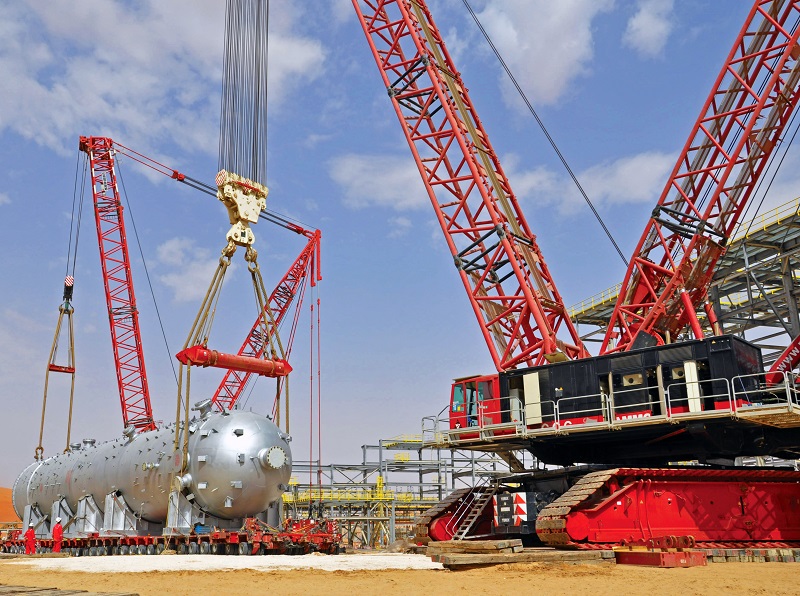South Korean oil and gas company Samsung Engineering has awarded Mammoet’s Saudi branch the transport and installation scope of the Aramco Hawiyah Unayzah Gas Reservoir Storage (HUGRS) project.
Samsung Engineering was appointed the main engineering, procurement, and construction (EPC) contract for Aramco HUGRS in January 2020.
The Aramco HUGRS project is located 260km east of Saudi Arabia’s capital Riyadh. The plant comprises a gas injection facility with a capacity of 1,500 million standard cubic feet per day (mmscfd) as well as a withdrawal facility which is capable of processing up to 2,000 mmscfd of gas.
The project includes construction of a gas injection facility with booster and injection compressors, a gas reproduction facility with reproduction compressors and slug catchers, as well as various utilities and offsite facilities.
Over 60 components will be received either at King Fahad Industrial Port in Jubail or at a fabrication facility in Dammam and transported to the site for further installation. The heaviest components include four slug catchers, each weighing more than 400t.
Mammoet’s scope includes associated port handling and customs clearance activities, obtaining of required permits from the Royal Commission and the Ministry of Transport, along with a close collaboration with Saudi Traffic Police to smoothly facilitate the project’s transport phase. Over 200 lifts are expected to take place throughout the 17-month long project.
Kevin O’Sullivan, General Manager Mammoet Saudi Arabia commented: “This contract award follows on from the successful delivery of other projects for Samsung Engineering in Saudi Arabia, such as the Shaybah petrochemical plant construction project and Jubail United Petrochemical Company’s EO/EG plant. It was secured primarily on the back of the client’s confidence in Mammoet’s technical expertise, quality and safety standards and we are confident in the success of this project.”
The facility is expected to be completed in 2023 and will enable Saudi Aramco to efficiently manage surplus gas volumes to meet seasonal demand.

